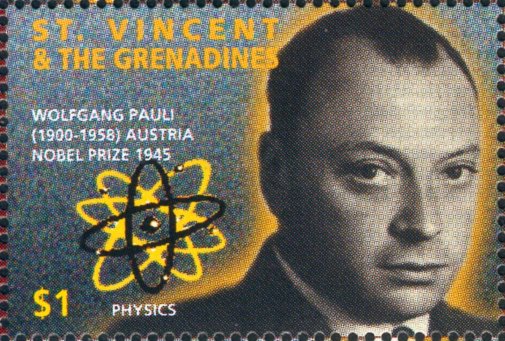

A great many of these discussions are documented in the Pauli/Jung letters, today published as Atom and Archetype. He soon began to criticize the epistemology of Jung's theory scientifically, and this contributed to a certain clarification of Jung's ideas, especially about synchronicity. Jung immediately began interpreting Pauli's deeply archetypal dreams based on the I Ching, and Pauli became one of Jung's best students. In January 1932 he consulted psychiatrist and psychotherapist Carl Jung, who also lived near Zurich. He held visiting professorships at the University of Michigan in 1931 and the Institute for Advanced Study in Princeton in 1935.Īt the end of 1930, shortly after his postulation of the neutrino and immediately after his divorce and his mother's suicide, Pauli experienced a personal crisis. He was awarded the Lorentz Medal in 1930. In 1928, Pauli was appointed Professor of Theoretical Physics at ETH Zurich in Switzerland. He also wrote a paper on colloid chemistry and medicine in 1924. In particular, he formulated the exclusion principle and the theory of nonrelativistic spin. During this period, Pauli was instrumental in the development of the modern theory of quantum mechanics. From 1923 to 1928, he was a professor at the University of Hamburg. Pauli spent a year at the University of Göttingen as the assistant to Max Born, and the next year at the Institute for Theoretical Physics in Copenhagen (later the Niels Bohr Institute). Einstein praised it published as a monograph, it remains a standard reference on the subject. Two months after receiving his doctorate, Pauli completed the article, which came to 237 pages.

Sommerfeld asked Pauli to review the theory of relativity for the Encyklopädie der mathematischen Wissenschaften ( Encyclopedia of Mathematical Sciences). He attended the Ludwig-Maximilians University in Munich, working under Arnold Sommerfeld, where he received his PhD in July 1921 for his thesis on the quantum theory of ionized diatomic hydrogen ( H +

Two months later, he published his first paper, on Albert Einstein's theory of general relativity. Pauli attended the Döblinger- Gymnasium in Vienna, graduating with distinction in 1918. Pauli was raised as a Roman Catholic, although eventually he and his parents left the Church. Pauli's mother, Bertha Schütz, was raised in her mother's Roman Catholic religion her father was Jewish writer Friedrich Schütz. Pauli's paternal grandparents were from prominent Jewish families of Prague his great-grandfather was the Jewish publisher Wolf Pascheles. Pauli's middle name was given in honor of his godfather, physicist Ernst Mach. Pauli was born in Vienna to a chemist, Wolfgang Joseph Pauli ( né Wolf Pascheles, 1869–1955), and his wife, Bertha Camilla Schütz his sister was Hertha Pauli, a writer and actress. 1.1 Early years and philosophical formationīiography Early years and philosophical formation.


 0 kommentar(er)
0 kommentar(er)
